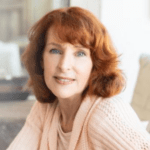11 Aug Strategies for Navigating Change

Sue Ryan, a transition strategist, speaker, coach, and mentor, discusses her strategies for navigating change with confidence and emotional intelligence.
Key Strategies for Navigating Change
Sue Ryan emphasizes the difference between change and transition:
- Change is the event, such as a new job or becoming a parent.
- Transition is the personal journey of how we handle that change and transform through it.
Sue advocates for navigating transitions intentionally, encouraging individuals to:
- Raise awareness of thoughts, feelings, and actions.
- Be curious about patterns of behavior and beliefs.
- Pause and reflect on daily actions and emotional responses.
- Choose responses consciously instead of reacting on autopilot.
Key Tips for Intentional Transitions
- Self-awareness: Ask yourself, “Is this really what I want to do?”
- Examine beliefs: Are your beliefs supporting you, or are they outdated?
- Stop automatic behaviors: Reflect on habits and question whether they serve your current goals.
Sue’s advice is to shift from feeling like a victim of change to understanding that change happens for you, not to you.
Emotional Intelligence and Leadership
Emotional intelligence (EI) is a critical theme in Sue’s message. She explains that emotions shape how we think and act, but many of us operate unconsciously, reacting based on outdated beliefs. Sue’s advice includes:
- Understanding the “why” behind emotions: Without understanding the root, it’s hard to assess emotions accurately.
- Empathy as a leadership skill: To be empathetic, leaders need to connect with their own emotions authentically.
- Managing stress effectively: Leaders should be aware of the emotional impact of their decisions and stressors, especially in times of transition.
Practical Application of Emotional Intelligence
- Pause to ask questions: When emotions arise, pause and ask, “Is this reaction current? Where is it coming from?”
- Reflect on your head, heart, and gut: Pay attention to signals from each of these areas to make informed decisions.
Massive Acceptance and Radical Presence
Sue introduces the concept of massive acceptance and radical presence, a framework she developed based on her caregiving experience. She explains:
- Massive acceptance: Accept situations fully, even if they are uncomfortable or unexpected. Acceptance doesn’t mean agreement, but it helps detach emotionally and view the situation clearly.
- Radical presence: Stay fully present in the moment. Don’t dwell on what could have been or worry about the future—focus on what you can control right now.
Together, these principles allow individuals to make thoughtful, wise decisions, even in difficult times.
The Caregiver’s Journey Program
Sue’s personal caregiving experiences have shaped her approach to helping others. She has cared for 11 family members over several decades and created The Caregiver’s Journey Program, which supports non-professional caregivers. The program covers:
- The five phases of caregiving, from the beginning of the journey to post-care.
- Emotional and practical support for caregivers balancing their professional and personal responsibilities.
Sue also developed Leadership C.A.R.E.S, a program designed to help organizations support employees who are caregivers by promoting awareness, resources, and solutions in the workplace.
Conclusion
Sue Ryan’s strategies for navigating change with intention, emotional intelligence, and acceptance provides invaluable guidance for individuals and leaders alike. Her insights remind us that every emotion has a purpose, and by becoming conscious of our reactions, we can make better decisions in both personal and professional spheres.
About Sue Ryan
Sue Ryan, a speaker, educator, coach, mentor, and author, has spent 35 years helping leaders in over 700 organizations navigate transitions in business and life. She is passionate about guiding individuals to understand themselves better and lead with confidence, achieving personal and professional success. Sue’s experiences as a non-professional caregiver for loved ones led her to create The Caregiver’s Journey Program, supporting others through caregiving challenges.
More
Are you interested in additional topics about thoughtfully navigating change or being resilient? Checkout these additional podcasts:
- Life After Tragedy – Jodie LaVoie
- Resilience in Turbulent Times – Roz Tsai


